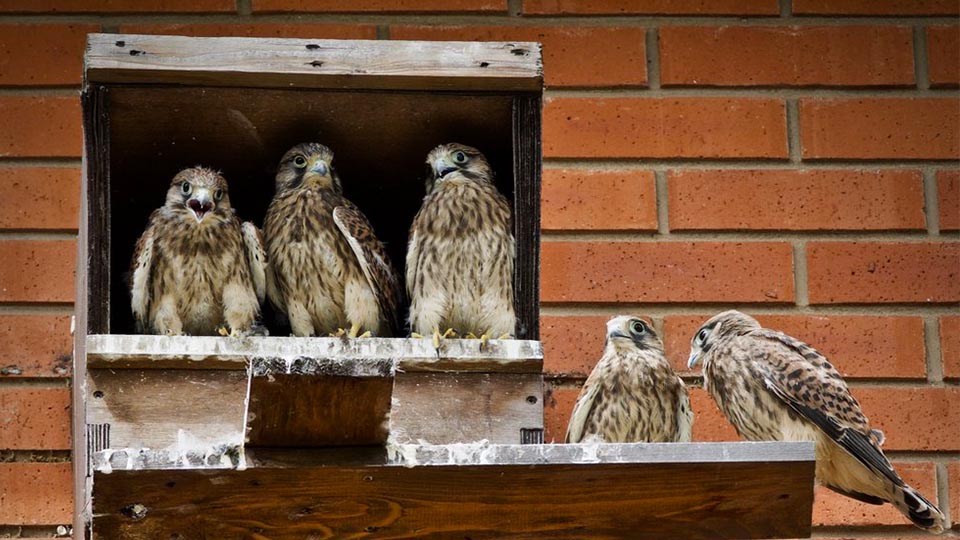The kestrels (known collectively as a flight, soar or hover) have been nesting at the University for four years.
Initially, they nested on a site that was difficult to monitor, so a nest box was set up in a more accessible area.
In the first year, the mother had three chicks, four in the second year, and this year she produced five.
The successful breeding, according to the University’s Senior Arborist Mark Hillman, is largely due to the way in which biodiversity is managed both on and around campus.
The team has supplemented the wildlife diet by putting out grain in a number of locations, including Holywell Wood, Carbon Emissions Wood, and near the fields where kestrels used to hunt.
The increased availability of grain has also encouraged more rodents for the kestrels to feed on.
Mark said: “We are now planning to install a new nest box with a fitted camera, so their activity can be monitored and streamed for people to watch.
“This will also help us monitor what the chicks are feeding on, so we can encourage more of that type of wildlife and balance the habitat.”
The nest box is located near the University’s Science and Enterprise Park; however, the young kestrels are almost ready to depart. It is expected that they will fledge within the next few days.
He continues: “All five are healthy and well, but we plan to get a bigger box next year to accommodate the increase in numbers. This morning, they were huddled together to keep out of the rain.
“It is quite unusual to have a brood of five make it to adulthood, so they have done very well indeed!”
Jo Shields, Sustainability Manager at Loughborough said: “This success story shows the commitment LU has to protecting and enhancing habitat across the campus.
“We are very lucky to live and work alongside the many species that share the site and I know staff and students get a great deal of pleasure from seeing these majestic birds.
“It is rewarding to see them thrive.”
ENDS
